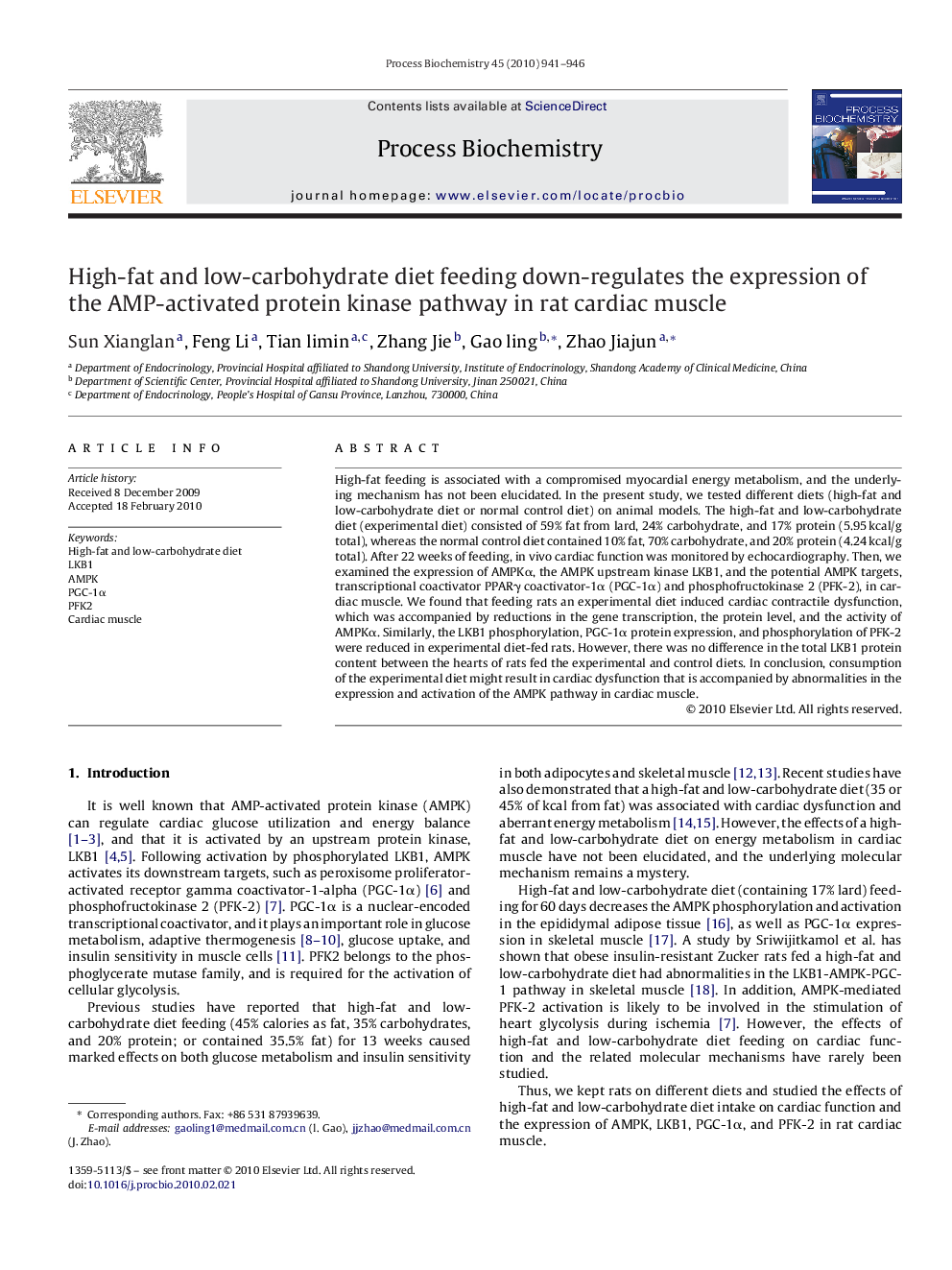| Article ID | Journal | Published Year | Pages | File Type |
|---|---|---|---|---|
| 35615 | Process Biochemistry | 2010 | 6 Pages |
Abstract
High-fat feeding is associated with a compromised myocardial energy metabolism, and the underlying mechanism has not been elucidated. In the present study, we tested different diets (high-fat and low-carbohydrate diet or normal control diet) on animal models. The high-fat and low-carbohydrate diet (experimental diet) consisted of 59% fat from lard, 24% carbohydrate, and 17% protein (5.95 kcal/g total), whereas the normal control diet contained 10% fat, 70% carbohydrate, and 20% protein (4.24 kcal/g total). After 22 weeks of feeding, in vivo cardiac function was monitored by echocardiography. Then, we examined the expression of AMPKα, the AMPK upstream kinase LKB1, and the potential AMPK targets, transcriptional coactivator PPARγ coactivator-1α (PGC-1α) and phosphofructokinase 2 (PFK-2), in cardiac muscle. We found that feeding rats an experimental diet induced cardiac contractile dysfunction, which was accompanied by reductions in the gene transcription, the protein level, and the activity of AMPKα. Similarly, the LKB1 phosphorylation, PGC-1α protein expression, and phosphorylation of PFK-2 were reduced in experimental diet-fed rats. However, there was no difference in the total LKB1 protein content between the hearts of rats fed the experimental and control diets. In conclusion, consumption of the experimental diet might result in cardiac dysfunction that is accompanied by abnormalities in the expression and activation of the AMPK pathway in cardiac muscle.
Keywords
Related Topics
Physical Sciences and Engineering
Chemical Engineering
Bioengineering
Authors
Sun Xianglan, Feng Li, Tian limin, Zhang Jie, Gao ling, Zhao Jiajun,
